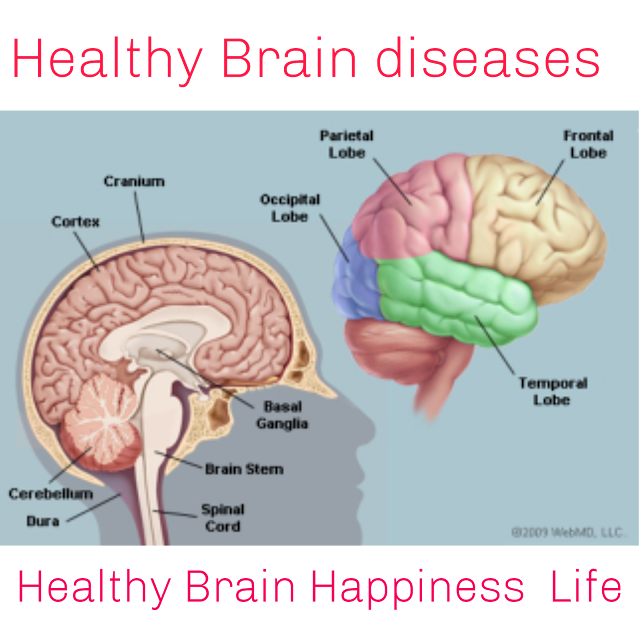Dr@kumar
Best Brain Health, Tinnitus And Hearing Improvement
The human mind is the war room of the sensory system and empowers contemplations, memory, development, and feelings with a puzzled capacity which is the highest result of organic advancement. Maintaining a healthy mind throughout one's life is the highest goal in the pursuit of well-being and longevity. As the population ages, the burden of neurological problems and difficulties in protecting the well-being of the mind increases. It is then crucial to understand what brain well-being is and why it is important. |
| Instant healthy brain........... |
This article is the first in an arrangement that aims to characterize the well-being of the mind, break down the impact of major neurological problems on the well-being of the brain, and discuss how these problems can be treated. and warned.
Meaning of brain well-being
At present, there is no perceived overall sense of brain well-being. Most of the existing definitions either have a holistic representation of ordinary brainwork or emphasize certain measures of well-being of the mind.
The US Centers for Disease Control and Prevention has characterized brain wellness as an ability to play through all psychological cycles of understanding, including the ability to learn and make judgment, to use language and 1 The American Heart Association / American Stroke Association (AHA / ASA), an official warning characterized ideal mental well-being as "normal levels of performance in all individuals of that age who are free from known or known brain diseases. other diseases of the organ structure at a decrease from the work levels, or as sufficient to perform all the exercises that the individual wishes to undertake.
2
The brain is a complex organ and in any case has three levels of capacity which influence all parts of our daily life: translation of faculties and control of development; support of psychological, mental and enthusiastic cycles; and maintaining typical behavior and social understanding. Well-being of the mind can in this sense be characterized as the protection of ideal brain honesty and mental and intellectual capacities at a given age without undeniable brain diseases that influence ordinary brain work.
Impact of major neurological problems on brain well-being
Some neurological problems can disrupt the capacities of the mind and influence the well-being of people.
On the restorative level, the neurological problems that cause a brain fracture can be organized into three groups:
Brain diseases with overt damage to structures of the mind, for example, cerebrovascular infections, horrific injuries to the mind, brain tumors, meningitis, and problems with correspondence and touch
Utilitarian mind issues with noticeable annihilation of brain associations or organizations, for example, neurodegenerative infections (eg, Parkinson's disease, Alzheimer's disease, and various dementias) and mental problems (eg, schizophrenia, sadness, confusion bipolar, alcohol dependence and drug addiction)
Other problems of the mind without underlying or practical impairment, for example, headaches and problems with rest.
These neurological problems can have unique or fundamental effects on the well-being and capacity of the brain.
For example, Alzheimer's infection is the main type of dementia, with a decrease in various spaces of psychological capacity.
Temperament issues can lead to pauses in performance, preparation for rewards, and enthusiastic directives.
Notwithstanding actual disability, aphasia, problems with walking and balance, and cerebrovascular disease can lead to psychological disability and dementia, which are not treated by patients and doctors.
Maturation and weight of neurological problems
Human maturation is mainly reflected in the parts of brain maturation and corruption of the work of the mind.
The number of individuals reaching maturity of 60 years and over was globally around 900 million in 2015 and there is a need to increase to two billion by 2050.
3 With the expansion of maturation and development of the population, the burden of neurological problems and difficulties in maintaining cerebral well-being is on the rise.
People with neurological problems will have a real disability, intellectual or mental problems, social disturbances and an enormous monetary burden.
Internationally, neurological problems were the main source of inability to change life years (276 million) and the leading cause of death (9 million) in 2016, as the global burden of disease.4 Stroke , headaches, Alzheimer's disease and other dementia and meningitis are the biggest proponents of life-changing neurological disability4.
About one in four adults will have a stroke in their lifetime, starting at the age of 255. living with dementia in 2018, and that number will dramatically increase to 152 million by 2050.6 Over the next several years, governments will face increasing interest in the treatment, recovery and supportive administrations for neurological conditions.
Investigate our article library for more regular tips and guidance to make your life simpler.
.................................@kumar...................................
!!!



Nice web page. Very informative.
ReplyDeleteThanks
DeletePost a Comment